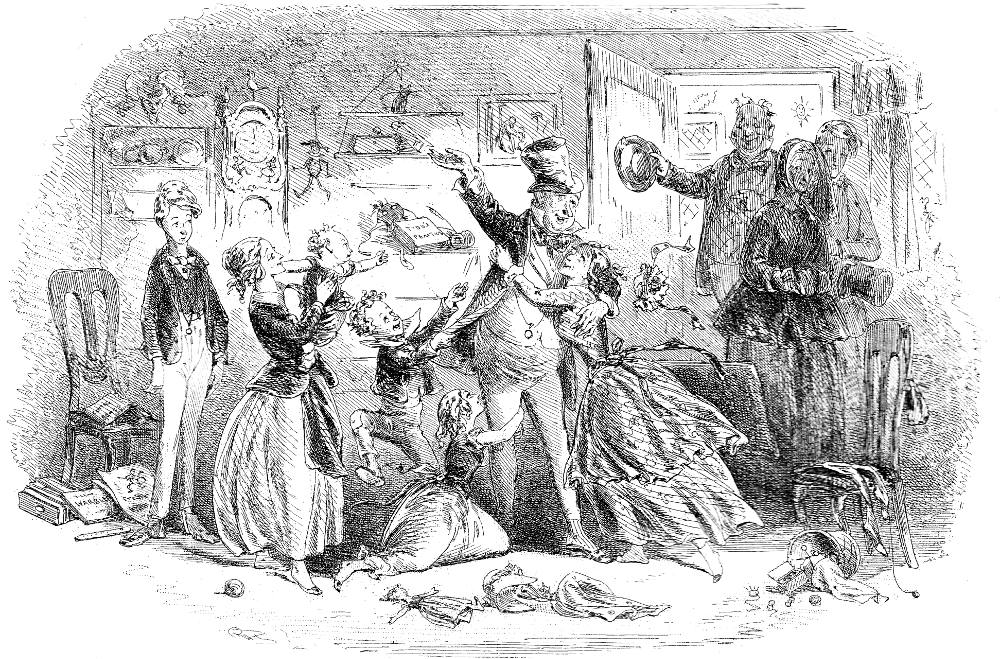The letter from Mrs. Micawber is the one quoted in chapter 42, which ends:
With loves from the children, and a smile from the happily-unconscious stranger, I remain, dear Mr. Copperfield, Your afflicted, Emma Micawber.
Charles Dickens (1850). David Copperfield, chapter 42. Project Gutenberg.
To make sense of this, you have to know this meaning of “stranger”:
stranger, n. 4.b. Said playfully of a newborn child. Usually little stranger.
Oxford English Dictionary.
Dickens also used the word in this sense in chapter 1. Here the “little stranger” is the newborn David Copperfield himself:
My mother was sitting by the fire, but poorly in health, and very low in spirits, looking at it through her tears, and desponding heavily about herself and the fatherless little stranger
So the phrase “unconscious stranger” in Mrs Micawber’s letter is a playful way of writing “sleeping baby”, and in chapter 52, the baby is being nursed by Miss Micawber because the Micawbers have five children and so the eldest have to help take care of the youngest.
The 1850 publication contained an illustration of this scene by Hablot K. Browne, captioned “Restoration of mutual confidence between Mr. and Mrs. Micawber”, though the “stranger” seems to have woken up.
